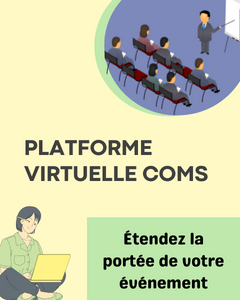Conférences > Mathématiques > Théorie des graphes et combinatoire
Sélecionner un pays
TOUS LES PAYS (10)
1
Regularity in Algebra, Combinatorics, and Geometry
19 avr 2026 - 24 avr 2026 • Banff, Alberta, Canada
Identifiant de l'évènement:
1668606
2
WAW 2026 — 21st Workshop on Modelling and Mining Networks
15 jui 2026 - 19 jui 2026 • Toronto, Ontario, Canada
Identifiant de l'évènement:
1685536
3
Cross-Community Collaborations in Combinatorics
21 jui 2026 - 26 jui 2026 • Banff, Alberta, Canada
Identifiant de l'évènement:
1668727
4
Workshop — SiMEGG: Structure in Matroids, Embedded Graphs and Graphs
29 jui 2026 - 03 jul 2026 • ICMS, Bayes Centre, Edinburgh , Royaume-Uni
Identifiant de l'évènement:
1670135
5
G2T2 — Graphs and Groups, Tessellations and Transformations (G2T2), International Conference and PhD-master Summer School
12 jul 2026 - 26 jul 2026 • Hong Kong, Chine
Identifiant de l'évènement:
1697291
6
Combinatorics and Geometry in Ioannina
02 sep 2026 - 06 sep 2026 • Ioannina, Grèce
Identifiant de l'évènement:
1624283
7
Arithmetic, L-functions, and Pseudorandomness
06 sep 2026 - 11 sep 2026 • Banff, Alberta, Canada
Identifiant de l'évènement:
1668836
8
Bridging Theoretical Discrete Math Advancements with Open Source Resource Development
27 sep 2026 - 02 oct 2026 • Banff, Alberta, Canada
Identifiant de l'évènement:
1668898
9
Higher Rank Graphs in Algebra, Geometry and C*-Algebras
01 nov 2026 - 06 nov 2026 • Banff, Alberta, Canada
Identifiant de l'évènement:
1668904
10
Evolving Random Structures and Interactions
06 dec 2026 - 11 dec 2026 • Banff, Alberta, Canada
Identifiant de l'évènement:
1668943
Conference-Service.com met à la disposition de ses visiteurs des listes de conférences et réunions dans le domaine scientifique. Ces listes sont publiées pour le bénéfice des personnes qui cherchent une conférence, mais aussi, bien sûr, pour celui des organisateurs. Noter que, malgré tout le soin que nous apportons à la vérification des données entrées dans nos listes, nous ne pouvons accepter de responsabilité en ce qui concerne leur exactitude ou étendue. Pensez donc à vérifier les informations présentées avec les organisateurs de la conférence ou de la réunion avant de vous engager à y participer!
Dernière mise à jour: 18 février 2026



